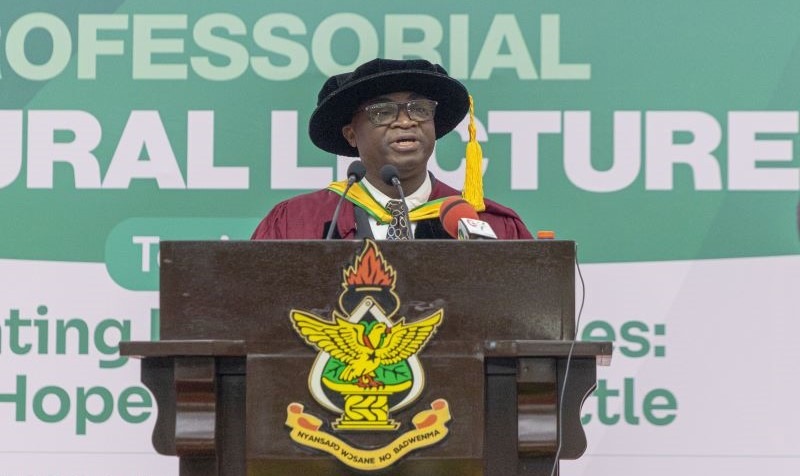By Florence Afriyie Mensah
Kumasi, August 12, GNA – African governments have been urged to strengthen the fight against Neglected Tropical Diseases (NTDs) by increasing funding in the control programmes of these diseases.
Professor Alexander Yaw Debrah, Dean of the Faculty of Allied Health Sciences at the Kwame Nkrumah University of Science, and technology (KNIST), who made the call, said NTDs had severe impact on health, quality of life and productivity in Africa.
There was, therefore, the need for Ghana and other African countries to integrate controls of filarial diseases such as elephantiasis, hydrocele, and river blindness, into national health plans and budgets.
This would help in attainment of the Sustainable Development Goals (SDGs) target of a 90 percent reduction in the number of people requiring treatment for NTDs and elimination of at least one NTD in 100 countries, by 2030.
Delivering a Professorial Inaugural Lecture at KNUST, Prof Debrah explained that sufficient funds must be allocated for NTDs control programmes, such as surveillance, treatment, and research.
Local and endemic country governments, including the government of Ghana, needed to commit some percentage of health funds to fight NTDs.
The Inaugural Lecture was on the topic “Eliminating Filarial Diseases: A New Hope for an Old Battle.”
“Eliminating NTDs will eliminate other aspects of SDGs such as poverty reduction, empowerment of women, he stated, adding that, filarial diseases like all the NTDs affect the poorest of the poor.
“Our data have shown that elephantiasis and hydrocele patients cannot afford basic medical bills.
We, therefore, need to add elephantiasis and hydrocele management to National Health Insurance Scheme (NHIS)” he stated.

Prof. Debrah again suggested that all stakeholders regularly assessed the effectiveness of control programmes and adjusted strategies as needed.
He cautioned stakeholders “not to hurry and close chapters on NTDs programmes,” especially those which were on the verge of being eliminated including filariasis, trachoma, yaws, African sleeping sickness and river blindness.
The Professor of Parasitology and Global Health, said experiences from yaws eradication programme and other NTDs programmes both local and international, showed that the last one percent of patients left was as equally important as the first 99 percent successfully treated.
He proposed that countries leverage technology and harness digital solutions to be able to identify new and old cases of NTDs in their communities for both surveillance and for management.
Prof. Debrah encouraged international cooperation and collaboration, public-private partnerships, and NGO involvement in committing funds into NTD programmes.
He said such funds would support the delivery of the World Health Organisations NTD road map (2021-2030) and could contribute towards the target of 100 countries eliminating at least one NTD by 2030.
GNA